What To Do When You’re Laid Off: A Coach’s Guide to Navigating the First Weeks
Losing a job can feel like someone pulled the rug out from under you. Even when it’s expected, the mix of surprise, stress, and uncertainty can be overwhelming.
AJO has supported over 15,000 professionals through this change, and we’ve seen how the first few weeks after a layoff can shape the path forward, for better or for worse. During this window, emotions run high and decisions set the tone for your next chapter.
In our career transition work, these steps help bring structure and intentionality to the first weeks.
1. Create Space to Process
Job loss is both professional and personal, affecting identity, routine, and confidence. Before jumping into job boards and networking calls, take time to acknowledge the change.
This pause isn’t about delaying your search, it’s about avoiding a reactive scramble. Those who take a moment to reflect on their direction enter the market with more clarity and better results.
2. Clarify Your Story
The story you tell about your layoff matters. Keep it clear, concise, and free from apology.
A strong layoff story is factual and forward-looking: explain the business reason behind the change, then pivot quickly to your skills, accomplishments, and the role you’re pursuing next. In early conversations, whether with a potential employer or a new contact, your tone matters as much as your words. The right story signals resilience and professionalism.
3. Prepare Your Career Materials
Once your story is set, align your career tools. Update your resume and LinkedIn profile to highlight your most recent work and impact. Turn on LinkedIn’s “open to work” setting if you’re ready to be visible to recruiters.
Whenever possible, ask for references and recommendations while your work is fresh in colleagues’ minds. This makes it easier to act when the right opportunity arises.
4. Tap Into Your Network
One of the biggest mistakes people make after a layoff is waiting too long to reconnect with their network. In the first few weeks, reach out to trusted contacts including people you’ve worked with, collaborated with, or supported in the past.
Be specific about the opportunities you’re seeking. Networking isn’t about asking for a job outright, it’s about staying visible, sharing your value, and opening the door to introductions you might not expect. This process is also an opportunity to intentionally expand your network by connecting with new people in your industry or in fields you’d like to explore.
5. Build a Plan
Treat your search like a job. Set daily or weekly goals, schedule time for networking and applications, and track your progress.
The plan does not need to be rigid. Part of a successful search is staying open to possibilities you hadn’t considered. However, structure matters; it keeps you focused, helps you see progress, and prevents you from spinning your wheels.
6. Take Care of Yourself
A layoff can be draining. Without deliberate effort, it’s easy to slide into burnout or isolation. Maintain a daily routine, get regular movement, and stay connected to friends and family.
This isn’t just about well-being, it’s about showing up with energy and confidence when opportunities arise, whether in a casual coffee meeting or a formal interview.
What Not to Do
While it’s important to focus on the actions that will move you forward, it’s equally important to avoid common missteps that can stall progress:
- Don’t rush into action without a plan. Jumping straight to job boards or mass applications can lead to wasted energy and scattered focus.
- Don’t let your layoff story turn negative. Keep it factual, professional, and forward-looking. Avoid language that sounds defensive or places blame.
- Don’t isolate yourself. Withdrawing from your network can make the process feel heavier and limit opportunities for connection and support.
- Don’t ignore the emotional side. Trying to “power through” without acknowledging how you feel can lead to burnout later.
- Don’t delay networking. Waiting too long to reach out can mean missing early leads and valuable introductions.
Avoiding these pitfalls keeps your search strategic, and sustainable.
The Coach’s Perspective
The first weeks after a layoff aren’t just about finding your next role, they’re about positioning yourself for success. AJO’s experience shows that structured support can shorten the emotional processing time, clarify direction, and make the job search more strategic.
A skilled coach can help you identify your next step faster, refine your materials, and keep you moving when momentum is hard to maintain. This isn’t about glossing over the experience, it’s about giving you the tools, perspective, and accountability to navigate it well.

